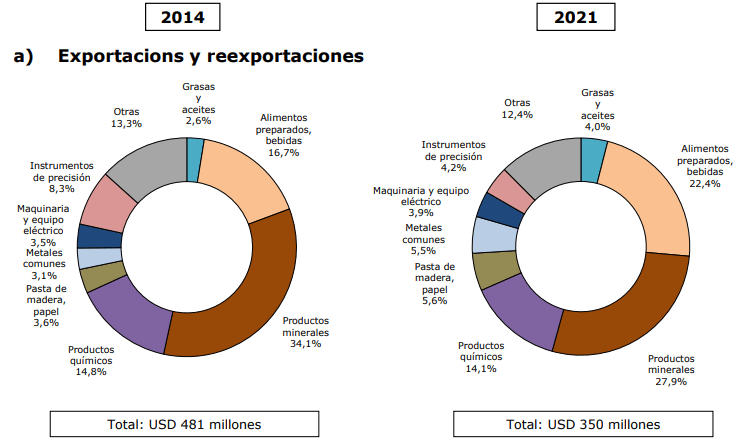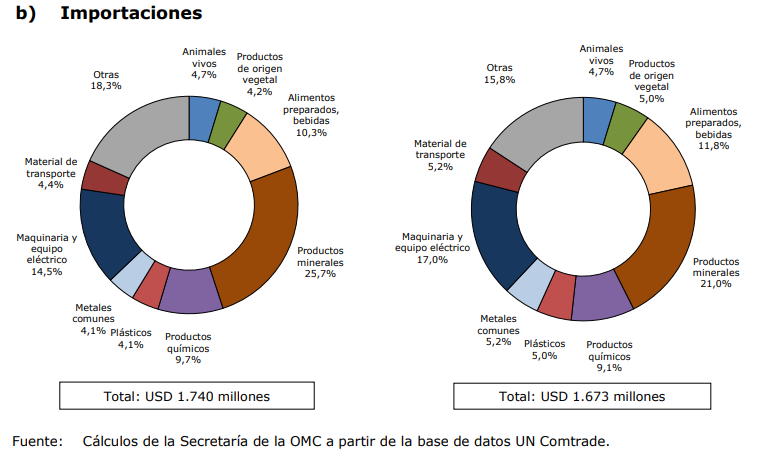Barbados is a member of the Caribbean Community and Common Market (CARICOM) and has an Economic Partnership Agreement (EPA) with the European Union, according to a World Trade Organization (WTO) report.
CARICOM members have sought to implement a Common External Tariff (CET) since 1991.
However, as of June 2022, individual countries’ customs tariffs still varied considerably, due to both authorized exemptions and mechanisms that allow for the suspension of the application of the CET in certain circumstances.
Barbados: Merchandise trade by major HS Sections, 2014 and 2021.

At least since 2014, no progress was made in terms of tariff harmonization.
Through CARICOM, Barbados has bilateral trade agreements with Colombia, Costa Rica, Cuba and the Dominican Republic.
On the other hand, an EPA with the European Union has been in force since 2008. Under this agreement, Barbados committed to reduce its tariffs gradually, over a period of up to 25 years, until 2033.
The exclusions and longer implementation periods apply mainly to agricultural products.
An agreement with the United Kingdom that entered into force in January 2021 replicates the agreement with the European Union.
CARICOM
Barbados also benefits from several non-reciprocal agreements, such as the U.S. Caribbean Basin Initiative (CBI), the Caribbean-Canada Agreement on Trade (CARIBCAN), and the CARICOM-Venezuela Agreement.
In addition, Barbados ratified the WTO Trade Facilitation Agreement in January 2018 and has notified the WTO of its Category A, B and C commitments. As of June 2022, Barbados had fulfilled 44.5% of its commitments under the Agreement.
Tourism
The WTO notes that Barbados has a relatively small and open economy. In 2020, its GDP per capita was around $14,619.
The country relies heavily on imports of goods and service exports, especially tourism. Due to this dependency, the Covid-19 pandemic significantly impacted its economy.
Real GDP fell by 14% in 2020 but grew slightly by 0.7% in 2021. However, this growth followed years of weak performance. Real GDP had declined in four years during the review period.
Limited economic diversification, heavy reliance on imported consumer and investment goods, and persistent fiscal deficits have made Barbados vulnerable to external shocks, even before the Covid-19 epidemic.

